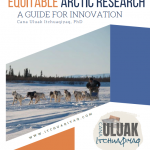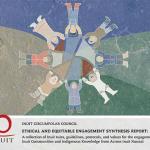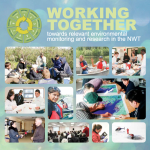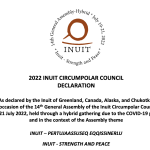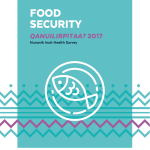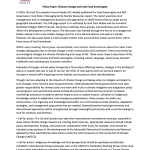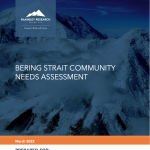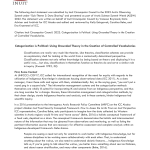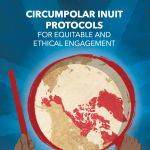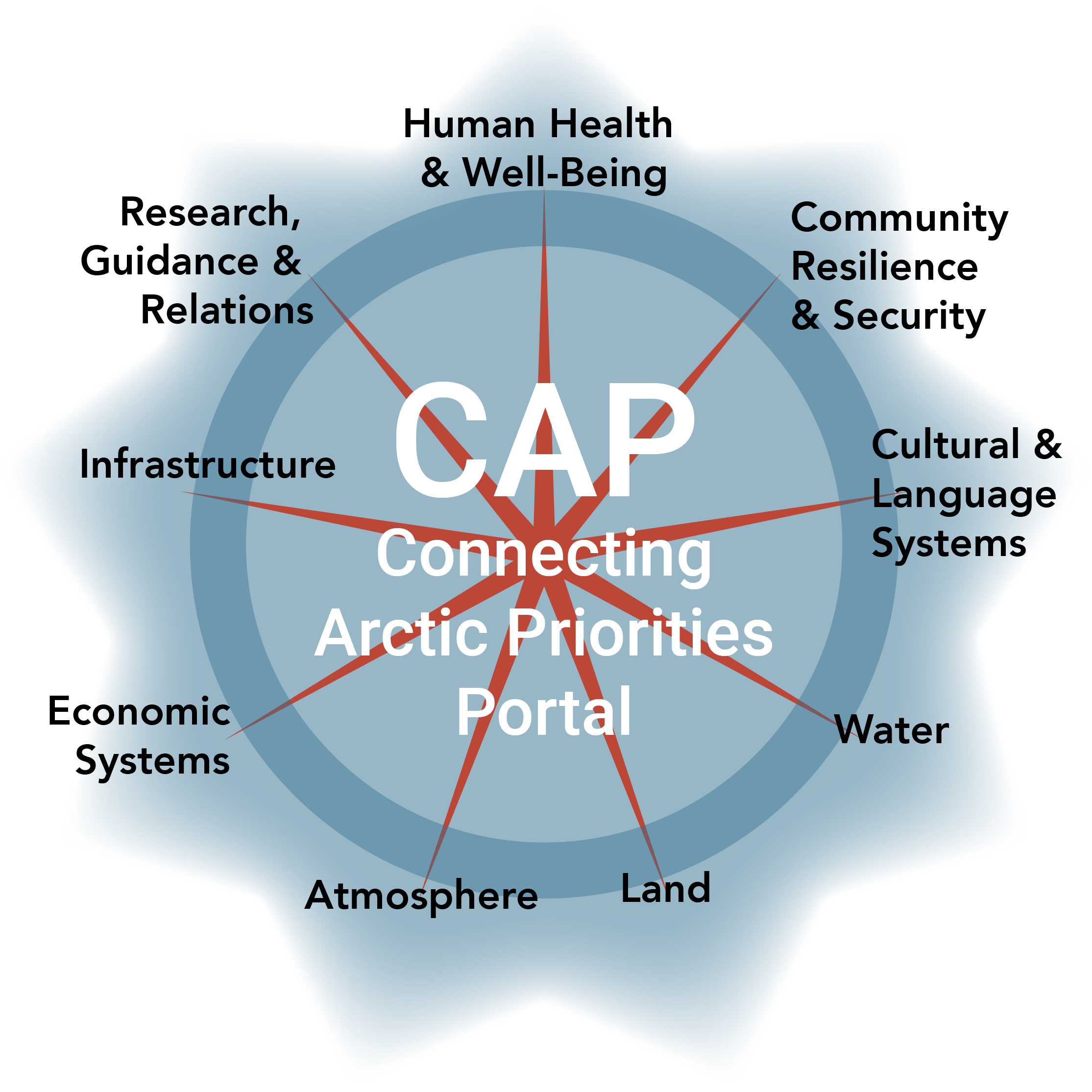 The CAP Portal is a searchable collection of reports and documents written by Tribes, Arctic communities, and Indigenous organizations. The NNA-CO is providing this collection to facilitate awareness of Arctic Peoples’ priorities and values, which may serve to inform Arctic research planning and meaningful engagement.
The CAP Portal is a searchable collection of reports and documents written by Tribes, Arctic communities, and Indigenous organizations. The NNA-CO is providing this collection to facilitate awareness of Arctic Peoples’ priorities and values, which may serve to inform Arctic research planning and meaningful engagement.
The ownership of the documents in this collection remains with the Tribes, Arctic communities, and Indigenous organizations who created and authored them. Use of these resources should not replace community engagement but rather supplement existing strategies for engagement.
Click here to read more about the CAP Portal or to suggest a document to include.
Kawerak-Region Tribal Research Protocols, Guidelines, Expectations & Best Practices
This document represents a Tribal vision from the Kawerak region about some key aspects of what Tribes want to see regarding the world of research. Topics covered include conceptualizing research, research oversight, planning research, conducting research, applying research, and information sharing and control.
Equitable Arctic Research: A Guide for Innovation
This guide on Equity in Arctic Research provides practical strategies for you to create equitable and effective partnerships with Indigenous communities in your research. By using the strategies and resources in this guide, you can work toward:
- Building respectful and long-term relationships with Indigenous communities
- Incorporating Indigenous Knowledges and practices in a respectful and equitable manner
- Achieving more meaningful and successful Arctic research
ICC Ethical and Equitable Engagement Synthesis Report
A collection of Inuit rules, guidelines, protocols, and values for the engagement of Inuit Communities and Indigenous Knowledge from Across Inuit Nunaat
Working Together: Towards Relevant Environmental Monitoring & Research in the NWT
The Working Together: Towards Relevant Environmental Monitoring & Research in the NWT document was developed by the Cumulative Impact Monitoring Program (CIMP) and the Aurora Research Institute (ARI) as a guide to help the NWT research and monitoring community improve the significance and success of their programs by working more effectively with community partners.
2022 Inuit Circumpolar Council Declaration
Reaffirming that the Inuit Circumpolar Council (ICC) exists as the unified voice for Inuit at the international level. The principal goals of ICC are to strengthen unity among Inuit of the circumpolar region; promote Inuit status, rights, and interests on an international level; develop and encourage long-term policies that safeguard the Arctic environment; and seek full and active partnership in the political, economic, and social development of the Arctic,...
Food Security QANUILIRPITAA? 2017 Nunavik Inuit Health Survey
The general objective of the 2017 health survey was to provide an up-to-date portrait of the health status of Nunavimmiut. It was also aimed at assessing trends and following up on the health and health determinants of adult participants since 2004, as well as evaluating the health status of Nunavik youth. This health survey has strived to move beyond traditional survey approaches so as to nurture the research capabilities and skills of Inuit and support the development and empowerment of communities.
Policy Paper: Climate Change and Inuit Food Sovereignty
In 2020, the Inuit Circumpolar Council Alaska (ICC Alaska) published the Food Sovereignty and Self Governance: Inuit Role in Managing Arctic Marine Resources report. The report examines Inuit management and co-management practices and approaches to distill lessons that can apply across geographic boundaries.
Bering Strait Community Needs Assessment
This 2022 Bering Strait Community Needs Assessment describes and analyzes strengths, challenges, and needs among communities in the Kawerak Service Area. In this summary, top regional strengths, challenges, and needs are presented for consideration in planning and decision-making.
Categorization is Political: Using Grounded Theory in the Creation of Controlled Vocabularies
By classifying and categorizing Arctic observations in accordance with knowledge systems of the people whose land the observation was taken on, Indigenous-led theories will be given their proper place in the role of Arctic observation. As a start, grounded theory informed by constructivism can begin to establish a preliminary classifications structure from pre-existing data. These preliminary re-classifications may align with Indigenous language & linguistic structure and categorization.
Circumpolar Inuit Protocols for Equitable and Ethical Engagement
Equitable and ethical engagement and the utilization of Indigenous Knowledge is required to inform research, assessments, monitoring programs, decision-making, policy and governance. Such an approach will ensure that all will have the best available information to make sound decisions that respond to conditions facing the entire global community.

